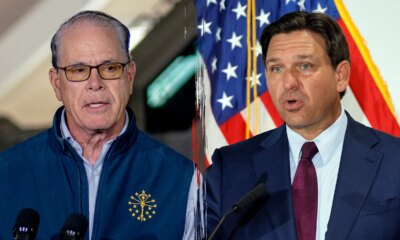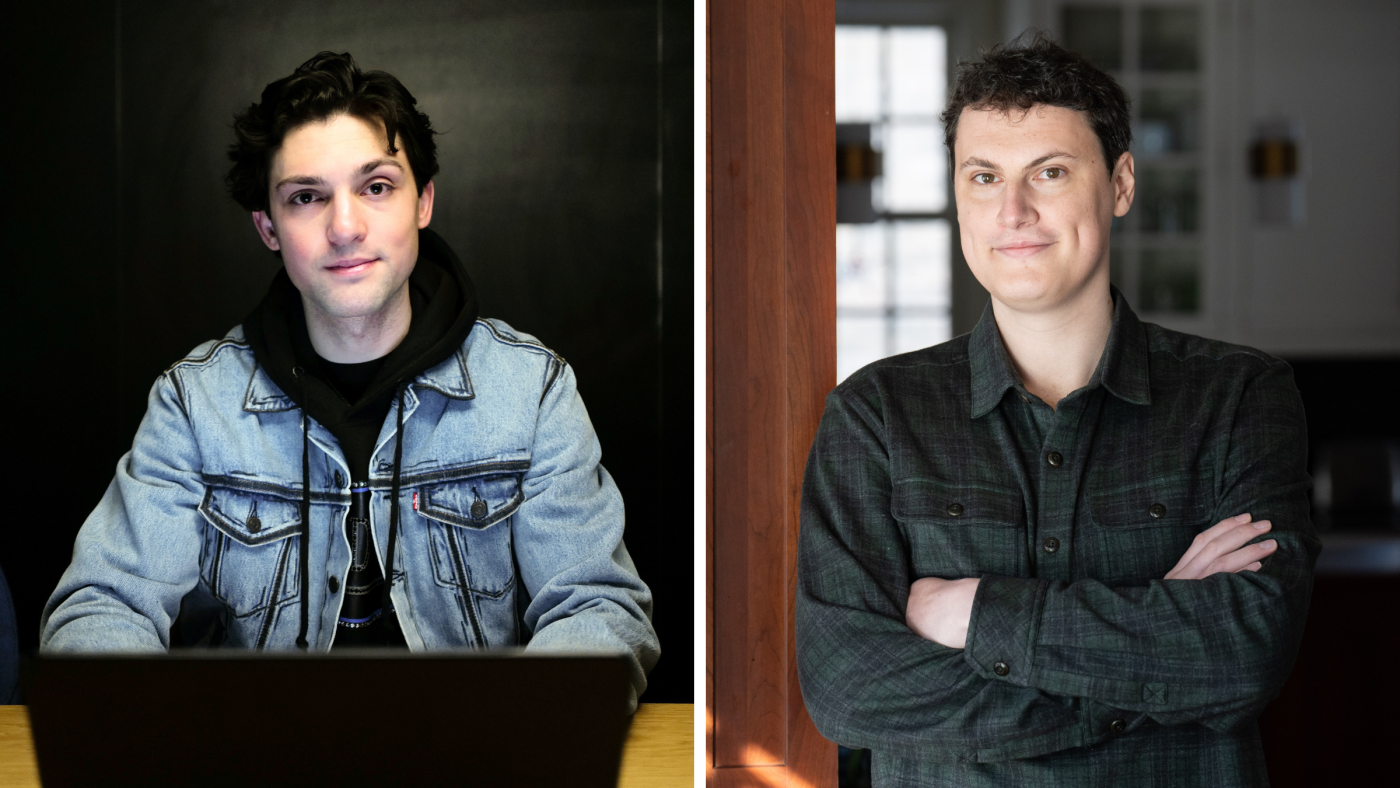Welcome to “Asking Eric,” a new daily advice column by R. Eric Thomas, which replaces Amy Dickinson’s “Ask Amy.” You can read her last column here.
Washington
Advice | Asking Eric: Self-published author struggles with jealousy

A friend just told me she won’t try out a new author unless they have thousands of good reviews on Amazon or Goodreads. My last book got about 20 good reviews after weeks of hustling. How do I keep going? How can I redirect my thoughts when the jealousy/despair hits?
Author: I worry you’re tracking your achievements using someone else’s yardstick. You’ve published a book. At some point in the past, that was the goal. So, you have already achieved one metric of success. Of course, we all harbor dreams of acclaim, but those dreams are so rarely right-sized. Do you want to be a famous author or do you want to be an author who is reaching readers who appreciate you?
This is a career field where jealousy waits around every corner, but other people’s success doesn’t take anything away from us. You’re not in competition with other authors, you’re in competition with your own expectations. Ask yourself: If you got thousands of reviews, would that feel like enough? You are already enough so let’s reframe your goals to help you feel that more often.
Your friend is entitled to her own selection process but thousands of reviews is an unrealistic number. To get that, any author, even the Emily Henrys and John Grishams, needs the support of dozens, if not hundreds of people employed by the big publishing houses. Meanwhile, you worked your tail off and got those 20 reviews on your own. That’s huge!
If there’s an author whose career you want to emulate, reach out to them to find out the nuts and bolts of how they got to where they are, but make sure that comparison will help you. As writer Freddie DeBoer recently pointed out in an issue of his Substack newsletter titled “Publishing is Designed to Make Most Authors Feel Like Losers Even While the Industry Makes Money,” “writing is also an intensely personal endeavor, and so rejection by the various apparatchiks who decide who’s in and who’s out can feel especially cruel.” Have a good think about whose approval you want (hopefully your own) and what you’re trying to achieve. Remind yourself that the authors you see may have different goals than you and probably also feel that old jealousy.
Lastly, I can’t say enough about building relationships with independent booksellers and librarians. Get to know the ones in your area. Even if you’re exclusively publishing e-books, these pros can help you understand the decision-making that leads readers to books, and eventually to those online review sites.
Dear Eric: I am in my mid-60s. Sometimes when I meet people I haven’t seen for a long time, say from college, I hear “you haven’t changed a bit.” Back then I had shoulder length hair. Today, I’m bald and what hair I have left is cut very short. How do I respond to such nonsense while maintaining a good attitude toward them?
— Hair Yesterday, Gone Today
Hair: I understand your sentiment as a fellow member of the shaved head club (it’s cheaper! It’s cooler! But oh the sunburns!). Still, you should take the compliment in the spirit it’s given. Of course you’ve changed physically, but maybe your energy is the same. Or maybe they just think it’s flattering. If the mood suits say, “Oh, I’ve changed — I got even better.”
Dear Eric: My partner (husband) and I have been together for 18 years. My sister-in-law created a “family tree” and gave copies to all family members as a gift. On closer inspection, my “husband” was left off the family tree indicating that I am single. My sister-in-law and her family do not believe in gay marriage. What should I do about this slight?
Marriage: It’s a good thing your relationship’s existence isn’t dependent upon what your sister-in-law doesn’t believe in. Long-term relationships aren’t Santa Claus or the Easter Bunny, they’re mostly taking out the garbage and texting each other things to pick up from the grocery store. (They’re also emotional support, caretaking, and commitment, and all that good stuff.) I’m sure you’ve already had this banging-your-head-against-the-wall conversation with your in-law, but you should voice your displeasure about the tree as a way of setting an expectation about the respect you want. Once you’ve said your piece, throw the “gift” in the trash and order your own correct tree and give it to your family.
(Send questions to R. Eric Thomas at eric@askingeric.com or P.O. Box 22474, Philadelphia, PA 19110. Follow him on Instagram and sign up for his weekly newsletter at rericthomas.com.)
2024 Tribune Content Agency, LLC.

Washington
Pentagon readies 1,500 troops to possibly deploy to Minnesota, US media say

The army placed the units on prepare-to-deploy orders in case violence in the northern state escalates, the Washington Post reported, citing unnamed defense officials, adding that it is not clear whether any of them will be sent.
Sign up here.
The White House told the Post in a statement that it is typical for the Pentagon “to be prepared for any decision the President may or may not make.” The Pentagon and the White House did not immediately respond to requests from Reuters for comment.
THREAT OF TROOPS FOLLOWS SURGE OF IMMIGRATION AGENTS
“If the corrupt politicians of Minnesota don’t obey the law and stop the professional agitators and insurrectionists from attacking the Patriots of I.C.E., who are only trying to do their job, I will institute the INSURRECTION ACT,” Trump posted on his Truth Social platform.
The soldiers subject to deployment specialize in cold-weather operations and are assigned to two U.S. Army infantry battalions under the 11th Airborne Division, which is based in Alaska, the Post and ABC News reported.
Trump, a Republican, has sent nearly 3,000 federal agents from ICE and Border Patrol to Minneapolis and neighboring St. Paul since early last week, as part of a wave of interventions, mostly to cities run by Democratic politicians.
Local leaders have accused the president of federal overreach and of exaggerating isolated episodes of violence to justify sending in troops.
The Insurrection Act is a federal law that gives the president the power to deploy the military or federalize National Guard troops inside the U.S. to quell domestic uprisings.
The law can be invoked when there are “unlawful obstructions, combinations or assemblages or rebellion” against federal authority. If the president deems those conditions have been met, he may use the armed forces to take actions “to enforce those laws or suppress the rebellion.
Reporting by Chandni Shah in Bengaluru; Editing by Tom Hogue and William Mallard
Our Standards: The Thomson Reuters Trust Principles.
Washington
Bellevue vs. Renton: Watch Washington boys high school basketball tilt live tonight

If you purchase a product through a link on our site, we may receive compensation.
Bellevue travels to Renton High School on Friday night for a nonleague matchup that pits two surging programs coming in on win streaks. The Wolverines (12-2) enter riding momentum from last season’s state quarterfinal appearance, while the Red Hawks (7-8) look to build consistency under head coach Rashaad Powell.
Head coach Warren King returns a deep senior class led by Jackson Skaggs, Max Harrity, Eduardo Molina, Kenny Shin, Trevin King and Nick Norrah. The Wolverines also feature junior Tayten Jones, giving them a balanced roster capable of competing with any team in the state.
The Red Hawks counter with their own weapons. Senior Isaac Elegan anchors the lineup, while junior scorer Sudan Luok provides offensive firepower. Junior co-captains Julius White-Kelly, Nick Jarvis and Jalen Taylor round out a core that has shown flashes this season.
Opening tipoff is set for 8 p.m. PT on Friday, January 16 with a live TV broadcast on NFHS Network.
• WATCH: Bellevue vs. Renton basketball is livestreaming on NFHS Network
High school basketball on NFHS Network
Watch high school sports anywhere from wherever you are.
Watch now
How to watch Bellevue vs. Renton basketball livestream
What: Wolverines, Red Hawks set for Friday night Showdown in Renton
When: Tipoff is set for 8 p.m. PT on Friday, January 16
Where: Renton High School | Renton, Washington
Watch live: Watch Bellevue vs. Renton live on the NFHS Network
Washington
National Guard troops to stay on Washington, DC, streets through 2026
WASHINGTON (AP) — National Guard troops will be on the streets of Washington, D.C., until the end of the year, according to a memo reviewed by The Associated Press.
The memo, signed by Army Secretary Dan Driscoll and dated Wednesday, said “the conditions of the mission” warranted an extension past the end of next month to continue supporting President Donald Trump’s “ongoing efforts to restore law and order.”
Meanwhile, Trump said this month that for now he was dropping his push to deploy National Guard troops in Chicago, Los Angeles and Portland, Oregon, which had provoked legal challenges. He also backed off a bit Friday from his threat a day earlier to invoke the Insurrection Act to deploy troops to quell protests in Minnesota.
In Washington, troops have been charged with patrolling the streets and picking up trash. Trump has asserted repeatedly that crime has vanished in the city.
Two National Guard troops from West Virginia that were part of the mission in D.C. were shot the day before Thanksgiving. Specialist Sarah Beckstrom, 20, died from her injuries.
The National Guard has about 2,400 troops in Washington, with about 700 from D.C. and the rest from 11 states with Republican governors, including Indiana, South Carolina, Alabama and Oklahoma.
-

 Montana1 week ago
Montana1 week agoService door of Crans-Montana bar where 40 died in fire was locked from inside, owner says
-

 Delaware1 week ago
Delaware1 week agoMERR responds to dead humpback whale washed up near Bethany Beach
-

 Dallas, TX1 week ago
Dallas, TX1 week agoAnti-ICE protest outside Dallas City Hall follows deadly shooting in Minneapolis
-

 Virginia1 week ago
Virginia1 week agoVirginia Tech gains commitment from ACC transfer QB
-

 Montana1 week ago
Montana1 week ago‘It was apocalyptic’, woman tells Crans-Montana memorial service, as bar owner detained
-

 Minnesota1 week ago
Minnesota1 week agoICE arrests in Minnesota surge include numerous convicted child rapists, killers
-

 Lifestyle3 days ago
Lifestyle3 days agoJulio Iglesias accused of sexual assault as Spanish prosecutors study the allegations
-

 Oklahoma7 days ago
Oklahoma7 days agoMissing 12-year-old Oklahoma boy found safe




















